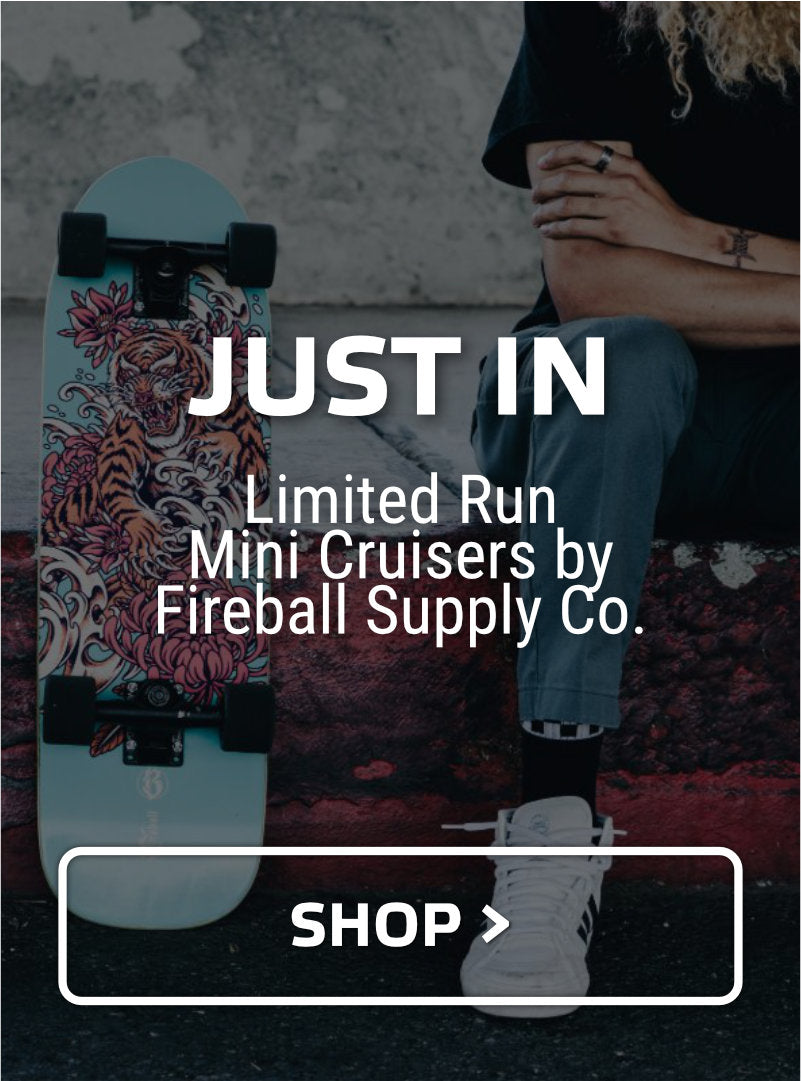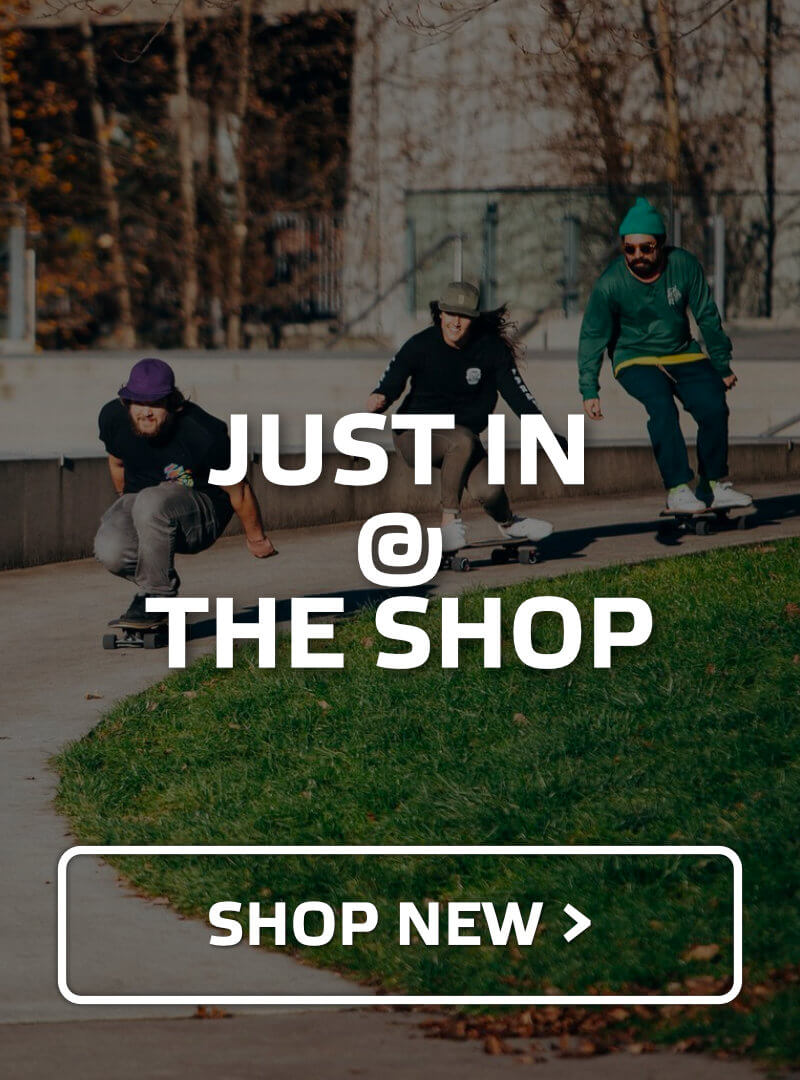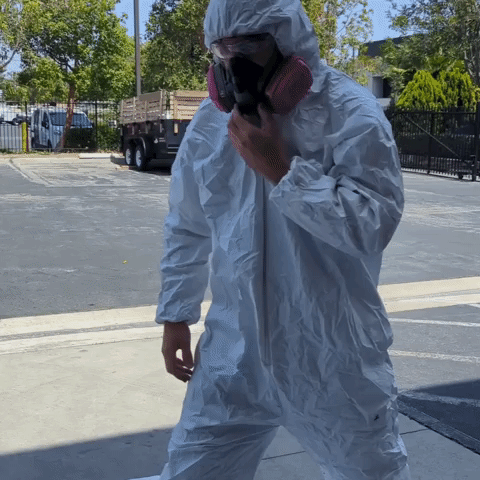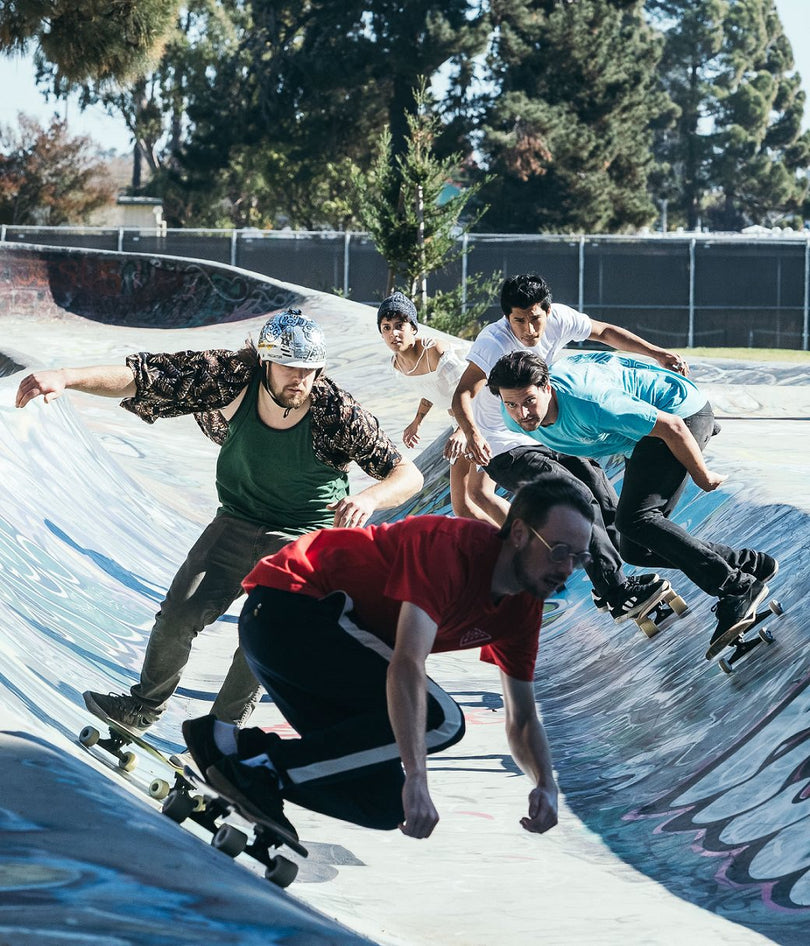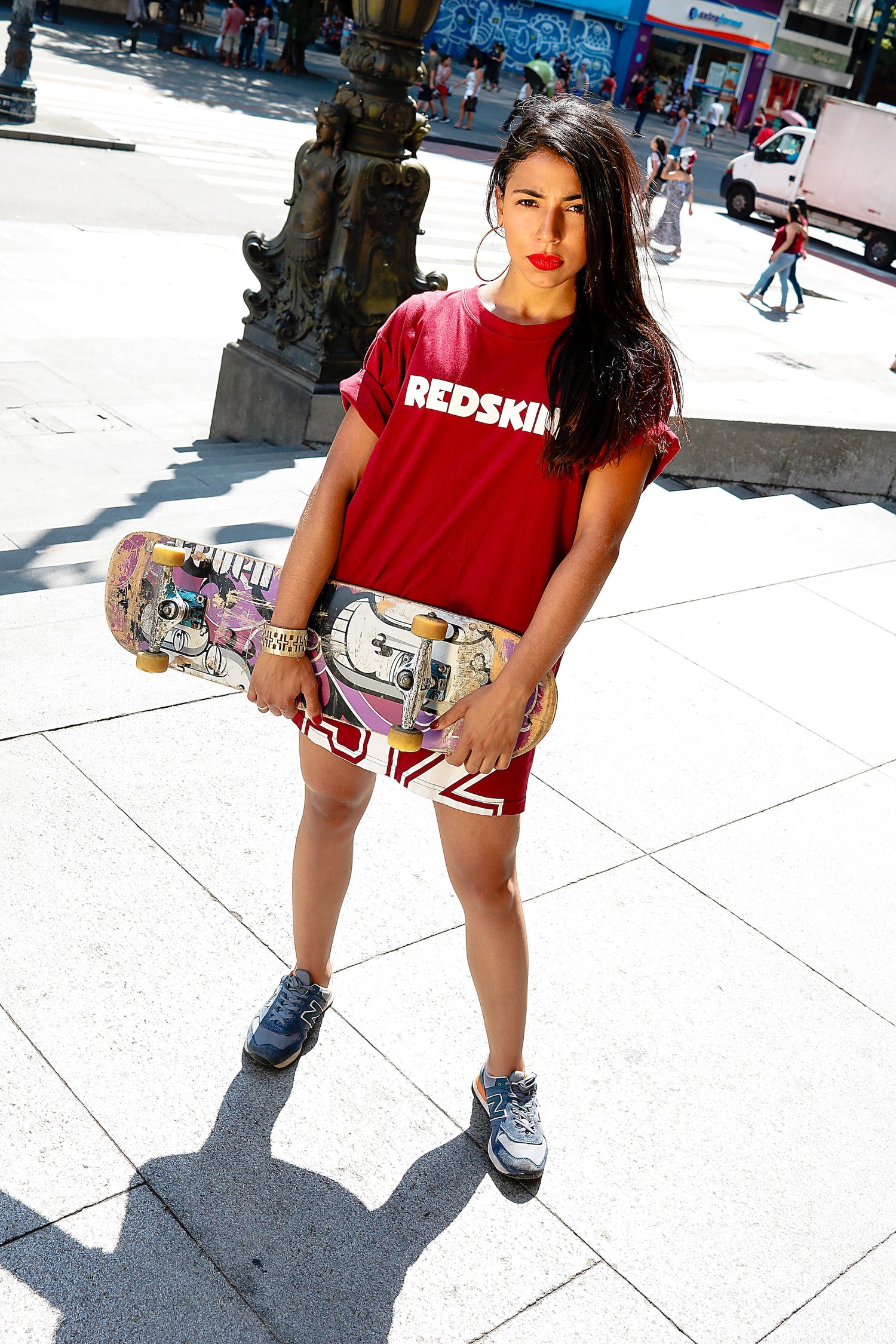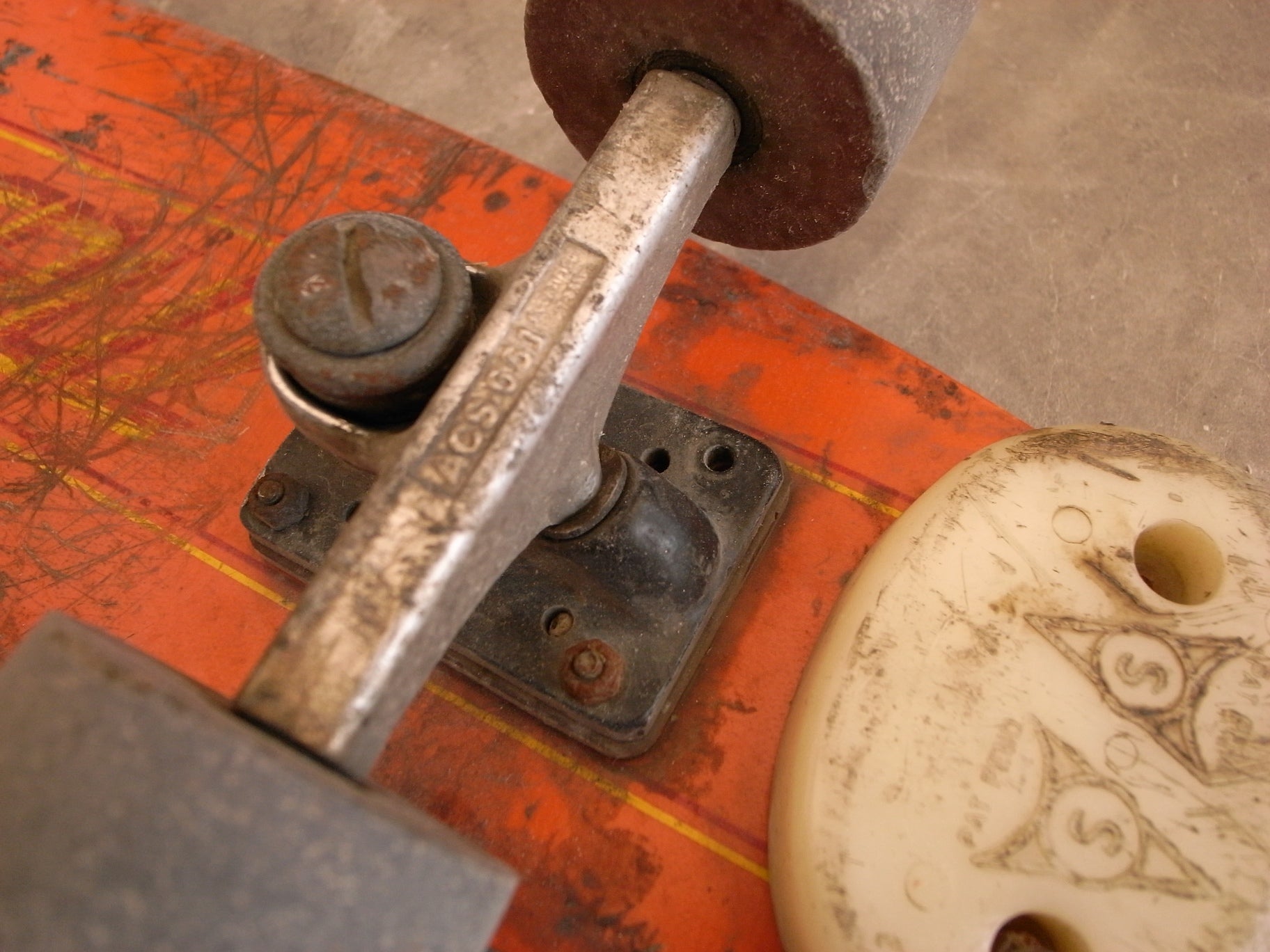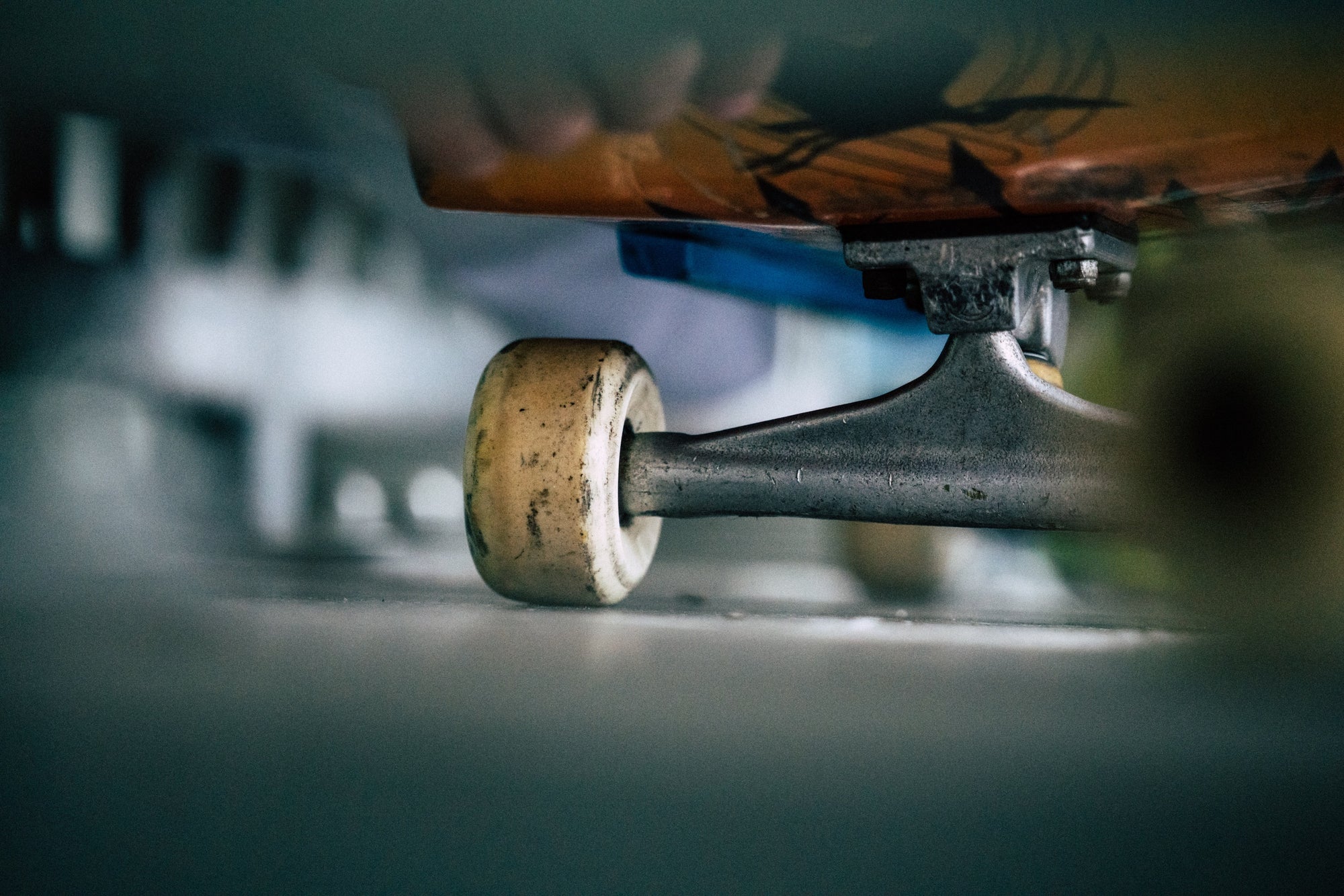You may be wondering how to ride a skateboard for the first time. If that’s the case, check out this article.
What should I do on my first day of skateboarding?
Assuming you have never stepped on a skateboard before, here are some things you can do to have the best first day possible.
1. Choose the right board. If you're a beginner, it's best to start with a larger board for stability. You can always move to a smaller board once you've mastered the basics.
2. Get familiar with your board. Before you start skating, take some time to get comfortable with your board. Stand on it and push it around to get a feel for its size and weight.
3. Start slow. Don't try any fancy tricks on your first day–just focus on getting comfortable with riding your board. Practice stopping and starting, and turning in both directions.
4. Take breaks. Skateboarding takes a lot of energy, so make sure to take breaks often. Drink plenty of water and take a break if you start to feel tired.
5. Have fun! Skateboarding is supposed to be fun, so don't get too frustrated if you can't do everything perfectly on your first try. Just keep practicing and you'll eventually get the hang of it.
[Have you tried PSD Underwear?]
-
💰
Best Board
Stoked Ride Shop Complete 
- Why it's rad: Hand built in CA. Dragon BUILT Bearings are a premium bearing and the tool + wax are a rad bonus to round out this great deal.
- Buy at Stoked Buy at Amazon
How do you ride a skateboard step by step?
Whether you're a beginner or an experienced skater, it's important to know how to ride your skateboard properly. Here are a few tips to help you get started:
1. Choose the right board. There are many different types of boards available on the market, so it's important to choose one that's right for your skill level and skating style. If you're just starting out, a smaller board with softer wheels is a good option.
2. Get the right shoes. Skateboarding shoes are designed to provide traction and support when you're skating. They should also be comfortable so you can concentrate on your riding.
3. Warm up before you skate. Just like any other physical activity, it's important to warm up your muscles before you skate. A simple warm-up routine of jumping jacks or light stretching will do the trick.
4. Start slow. When you're first learning how to ride, it's important to go slowly and be cautious. As you get more comfortable on your board, you can start to go faster and take on more challenging tricks.
5. Practice, practice, practice. The only way to improve your skating is to practice as much as possible. Get out there and skate as often as you can.
Can you teach yourself skateboarding?
Yes, you can teach yourself skateboarding. It may take some time and effort, but it is possible to learn the basics of skateboarding without taking lessons.
Here are a few tips to get you started:
1. Start by watching tutorial videos online. There are many great skateboarding instructional videos available for free on YouTube and other websites. Watching these videos will give you a good idea of how to do the basic maneuvers.
2. Find a local park or playground with a smooth concrete surface where you can practice. Avoid rough surfaces like asphalt or gravel, as they can damage your skateboard and make it more difficult to ride.
3. Start with the basics – learn how to push off, turn, and stop. Once you have mastered these basic maneuvers, you can start learning more advanced tricks.
4. Be patient and keep practicing. Like with any skill, it takes time and practice to master skateboarding. Don’t get discouraged if you don’t get the hang of it right away – keep at it and you will eventually get better.
[Here are the best skateboard tools.]
Is riding a skateboard easy?
Skateboarding is often seen as a relatively easy activity. After all, it doesn't require any expensive equipment or lessons - all you need is a skateboard and you're good to go. However, skateboarding is actually quite difficult, especially if you want to do more than just cruise around the block. It takes a lot of practice and coordination to be able to perform even basic tricks, let alone the more complex ones. So don't be discouraged if you can't nail that ollie on your first try - it takes most people a lot of time and effort to master skateboarding.
What is the best way to learn how to skateboard?
There is no one-size-fits-all answer to this question, as the best way to learn how to skateboard will vary depending on your individual skill level and learning style. However, there are some general tips that can help you get started on the right foot.
One of the most important things to do when learning how to skateboard is to find a good teacher or coach. A good instructor will be able to give you personalized attention and help you progress at your own pace. They will also be able to offer advice on the best techniques and equipment for your level.
Another important tip for learning how to skateboard is to practice regularly. Skateboarding is a physically demanding sport, so it's important to build up your strength and endurance. The more you practice, the better you'll become at it.
Finally, don't be afraid to ask for help from experienced skateboarders. They can offer valuable insights and advice that can help you avoid making common mistakes. With their help, you'll be able to learn how to skateboard quickly and effectively.
[A guide to snowboarding for beginners.]
What are the benefits of skateboarding?
Skateboarding is a great way to stay active and have fun. It can also help improve balance and coordination. Skateboarding can be a great way to meet new people and make friends. Skateboarding can also help you learn about other cultures and ways of life. Skateboarding is a great way to express yourself and your creativity. There are no rules or boundaries when it comes to skateboarding, so you can really let your imagination run wild! Skateboarding is also a great form of exercise, and can help improve your fitness levels. And, of course, skateboarding is just plain cool.
What should I wear while skateboarding?
Assuming you would like tips on what to wear while skateboarding, there are a few key things to keep in mind. First, you want to be sure to dress in layers. This will allow you to regulate your body temperature as you skate and will also protect you from injuries in the event of a fall. You should also avoid loose fitting clothing as it can get caught on the skateboard or on obstacles. Baggy pants are particularly problematic as they can cause you to trip and fall.
Next, you want to choose clothing that won't restrict your movement. Skateboarding requires a lot of movement of the legs and arms, so look for clothes that won't inhibit your range of motion. Stretchy fabrics or athletic wear are ideal. And finally, be sure to wear closed-toe shoes. This will protect your feet from getting injured by the skateboard.
So, in summary, when choosing what to wear while skateboarding, keep in mind the following: dress in layers, avoid loose fitting clothing, choose clothes that won't restrict your movement, and be sure to wear closed-toe shoes. By following these tips, you'll be able to stay safe and comfortable while skating.
[Everything to know about bouldering.]
What should I do to get better at skateboarding?
1. Get a good skateboard: You can't skateboard well if you don't have a good board. Make sure you get a board that is the right size for you and that is made of good quality materials.
2. Practice: Like with anything, the more you practice, the better you will become at skateboarding. Find a place where you can skate often, and try to improve your skills each time you skate.
3. Watch others: Skateboarding is a very visual sport, so it helps to watch other people skate. You can learn a lot by watching other skaters and seeing how they do things.
4. Get help from a coach or friend: If you really want to improve your skateboarding, it can help to get some coaching or lessons from a friend or professional. They can give you tips and tricks that you might not be able to figure out on your own.
5. Be patient: Learning to skateboard takes time and patience. Don't get frustrated if you don't improve overnight - keep practicing and you will eventually get better.
How many hours do you need to learn to ride a skateboard?
How many hours does it take to learn to ride a skateboard? This is a difficult question to answer, as it depends on the individual. Some people may be able to pick it up relatively quickly, while others may struggle for hours or even days before they are able to stay on the board for more than a few seconds.
One thing that is certain however, is that it takes practice. The more you get on the board and try to ride, the better your chances are of eventually becoming proficient at it. There are also a number of helpful instructional videos and articles available online which can speed up the learning process.
So, in summary, there is no one-size-fits-all answer to this question. It ultimately comes down to the individual and how much time and effort they are willing to put into learning. However, with some patience and practice, most people should be able to learn to ride a skateboard within a few days or weeks.
[Dave Mirra - one of our heroes.]
How do you know when you are ready to ride a skateboard?
There is no definitive answer to this question - it ultimately depends on the individual and their level of comfort and confidence. However, there are a few key things to keep in mind that can help you gauge whether you're ready to start skateboarding.
First, it's important to have a basic understanding of how to operate a skateboard. This means knowing how to push off, turn, and stop. Once you have these basics down, you'll be able to better control your board and avoid accidents.
Second, you should make sure you have the proper safety gear. This includes a helmet, knee pads, and elbow pads. Wearing this gear will help protect you from injury if you happen to fall off your board.
Third, it's important to choose the right skateboard for your skill level. If you're a beginner, it's best to start off with a simple board that is easy to control. As you become more confident, you can upgrade to a more advanced board.
How can I get good at skateboarding?
If you want to get good at skateboarding, there is no easy answer. Like with any skill, practice and dedication are key. However, there are a few things you can do to help improve your skating abilities.
One important thing to keep in mind is safety. Make sure you always wear the proper safety gear, including a helmet, elbow and knee pads, and wrist guards. It is also important to learn how to fall properly, so that you minimize the risk of injury. Many people find it helpful to take skateboarding lessons from a professional instructor.
There are also some specific techniques you can practice to improve your skating. For example, work on your balance by riding along curbs or rails. Practice hopping over obstacles, and try to land smoothly after jumping. Also, make sure you can stop quickly and efficiently. Remember, the better you get at skateboarding, the more fun it will be.
[What do you know about low trucks?]
Skateboarding Tips For Newbies
If you're thinking about taking up skateboarding, or have just started learning, here are some tips to help you get the most out of your experience.
1. Start with a good quality board. It doesn't have to be the most expensive model on the market, but it should be durable and well-constructed.
2. Don't be afraid to ask for help. Skateboarding can be challenging, and it's okay to seek out advice from experienced skateboarders. There are plenty of online resources and forums where you can find helpful information.
3. Practice, practice, practice. The more you skate, the better you'll become at it. And don't forget to have fun.
[How to ride a skateboard for the first time.]
Other factors to consider
Whether you ride regular or goofy, the fundamentals of skateboarding are very important. Beginners should also always wear protective gear, to avoid scrapes and cuts, even when performing very basic skateboard tricks.
Beginner skateboards aren’t too expensive either, Amazon alone has a ton of great options. So you won’t need to spend an arm and a leg to get something you love.
Skate shoes are also important, especially if you want to pull off kickturns at the skatepark. While you may not be powersliding like Tony Hawk right away, newbies should be able to ride on flat surfaces, like parking lots.
Smooth surfaces are important for beginners, as they will allow them to learn the basics, without rough pavement or obstacles getting in the way. Your local skate shop will have a ton of options, so you can bust out new tricks in no time.
You can even try mongo (pushing off your front foot instead of the back foot), and then move up to kickflips, along with other tricks. Complete skateboards aren’t all that expensive, so even an 8 year-old can have a parent grab a board for them, at relatively little cost.
Whether you get a quality skateboard, or a great longboard, there are truly unlimited options out there. Street skating isn’t easy, but beginner skateboard tricks aren’t so bad, and soon you will be improving all of your skateboarding skills.
You should also make sure you have high quality grip tape, as well as solid front wheels. The tail of the board is also important, and soon you’ll get the hang of the ‘lean forward’ maneuver too.

